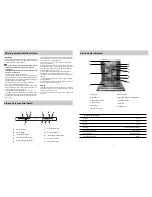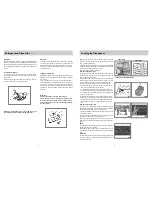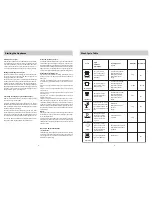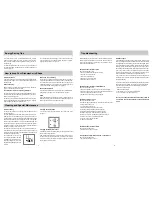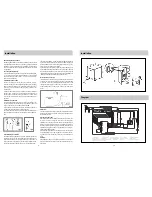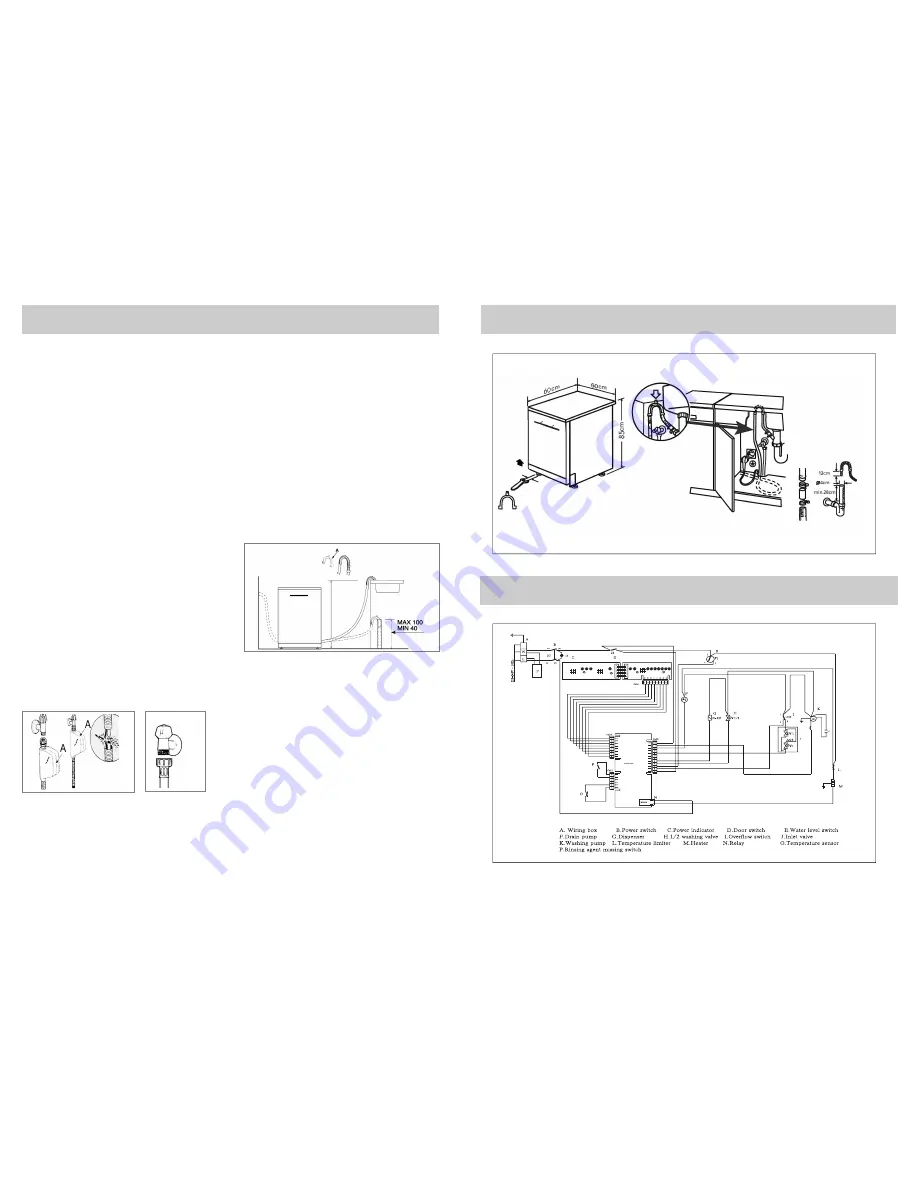
.9.
Installation
Positioning the Appliance
Positioning the appliance in the desired location. The back should
rest against the wall behind it, and the sides, along the adjacent
cabinets or wall. The dishwasher is equipped with water supply
and drain hoses that can be positioned to the right or the left of
the appliance.
Levelling the Appliance
Once the appliance is positioned, adjust the feet (screwing them
in or out) to adjust the level of the dishwasher. The appliance
should not be inclined more than 2˚. If it is level, it will help en-
sure proper performance.
The connection must be made to the hot water line following the
same procedures as those for the connection to the cold water
line.
Hot Water Connection
The water supply to the appliance can also be connected to the
house's hot water line (centralised system, heating system), as
long as it does not exceed a temperature of 60
.
In this case,the wash cycle time will be shortened by about 15
minutes and the wash efficiency slightly reduced.
fig.2
Drain Hose Connection
Insert the drain hose into a drain pipe with a minimum diameter
of 4cm, Or let it run into the sink, making sure to avoid bending
or crimping it. Use the special plastic support that comes with
the appliance (see fig.3). The free end of the hose must be at a
height between 40 and 100 cm and must not be immersed in
water.
Attention:
The special plastic hose support must be solidly fastened to the
wall to prevent the drain hose from moving and allowing water to
spill outside the drain.
Electrical Connection
After making sure that the voltage and frequency values for the
current in the home correspond to those on the rating plate
(located on the stainless steel inner door of the appliance) and
that the electrical system is correct for the maximum voltage on
the rating plate, insert the plug into an electrical socket which is
earthed properly (the earthing of the appliance is a safety re-
quirement mandated by law).
If the electrical socket to which the appliance must be connected
is not appropriate for the plug, replace the plug, rather than us-
ing adaptors or the like as they could cause overheating and
burns.
Caution:
The dishwasher plug must be accessible even when the appli-
ance is installed as a built-in unit so that maintenance can be
done safety.
Installation
Diagram
.10.
Cold Water Connection
Connect the cold water supply hose to a threaded 3/4 (gas)
connector, making sure that it is fastened tightly in place (see fig.2).
Some models are fitted with an "Aquastop" water supply hose
(see fig.1) in which the small filter is already housed in the
threaded end.
If the water pipes are new or have not been used for an extended
period of time, let the water run to make sure that the water is
clear and free of impurities. If this precaution is not taken, there
is a risk that the water inlet can get blocked and damage the
appliance.
Anti-Flooding Protection
The dishwasher is equipped with a system that stops the supply
of water in the event of a problem with the water supply hose, or
leaks within the unit, in order to prevent damage to your home. If
for any reason the box containing the electrical components hap-
pens to get damaged, remove the plug for the appliance from
the socket immediately. In order to guarantee that the anti-flood-
ing feature operates properly, the "A" box with water supply hose
must be attached to the water supply tap as shown in Fig .1. No
other type of connection is acceptable.
The water supply hose must not, under any circumstances, be cut,
as it contains electrical parts which are live. If the length of the hose
is not adequate to make a proper connection, the hose must be
replaced with one which is long enough. This hose is available upon
request from specialised retailers and service centres.
fig.3
fig.1


